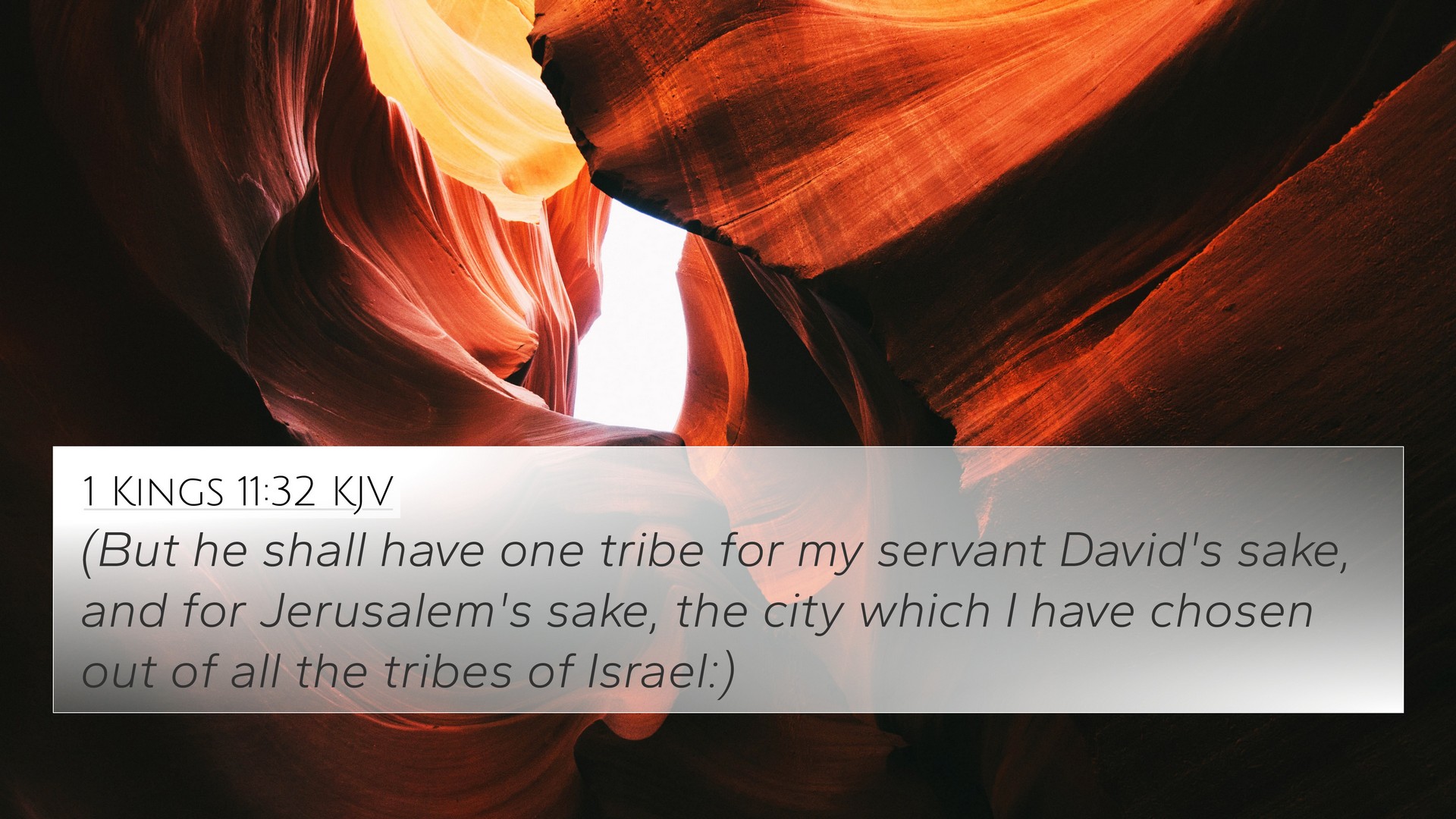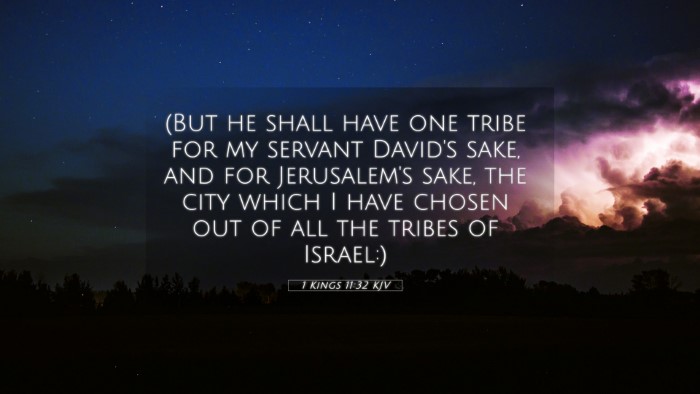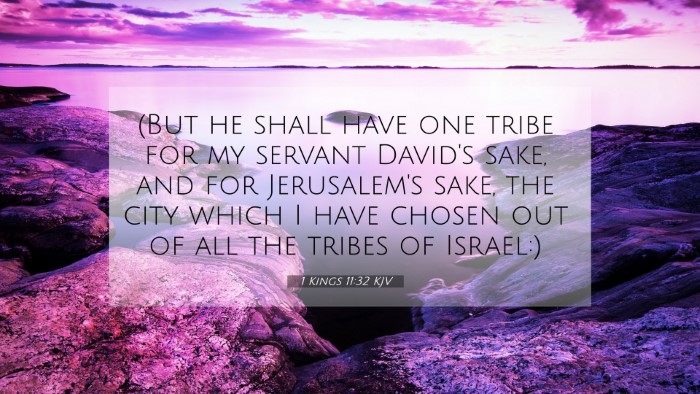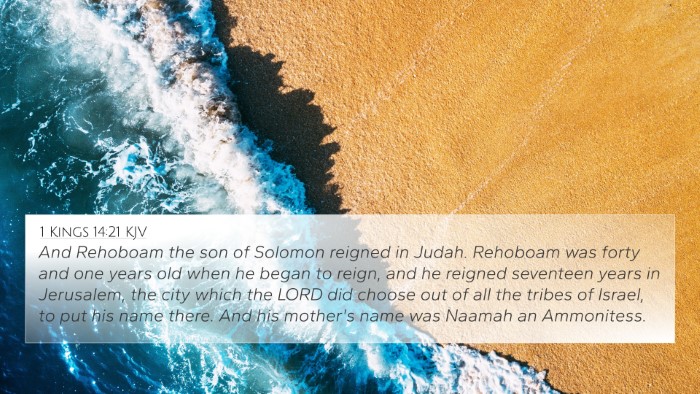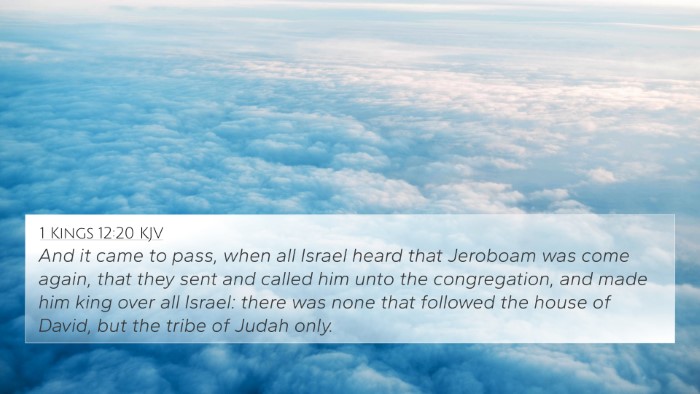Understanding 1 Kings 11:32
The verse 1 Kings 11:32 states:
“But he shall have one tribe for my name's sake, that David my servant may always have a lamp before me in Jerusalem, the city which I have chosen for my name.”
This verse is significant in its theological and historical context, providing insights into God's covenant with David and the ensuing division of the kingdom of Israel.
Verse Analysis
This verse occurs after a discussion on Solomon's idolatry and the consequences that follow. The promise of one tribe remaining faithful to David’s line emphasizes God's commitment to His covenant despite human failures.
Theological Themes
- Divine Fidelity: God assures the continuity of David’s lineage as part of His covenant.
- Judgment and Mercy: While judgment is pronounced over Solomon, mercy is extended to David's descendants.
- The Role of Jerusalem: Highlighting the importance of Jerusalem as the chosen city of God.
- The Significance of Tribes: This verse introduces the theme of tribal division within Israel's history.
Cross-Referencing Biblical Texts
Numerous Biblical references provide context and depth to 1 Kings 11:32, enabling a more comprehensive understanding through cross-referencing. Here are 10 relevant cross-references:
- 1 Samuel 16:1: God's selection of David as king.
- 2 Samuel 7:12-13: God's covenant with David regarding his dynasty.
- 1 Kings 11:31: The prophecy of division that precedes this verse.
- 1 Kings 12:20: The division of the kingdom into two parts.
- Psalm 132:17: Acknowledgement of David’s lamp and lineage.
- Jeremiah 33:17: God's promise regarding David's descendants.
- Matthew 1:12: The genealogy of Christ illustrating David's continuing line.
- Romans 11:1: Paul asserts that God has not rejected His people.
- Revelation 3:12: The eternal city of God, tied back to Jerusalem.
- Micah 5:2: Prophecy concerning Bethlehem and the coming ruler from David’s line.
Connecting Themes
The inclusion of one tribe signifies God's plan to maintain a remnant of His people, linking back to themes of hope and redemption found throughout scripture. Notably, this verse encourages believers to consider how divine promises are upheld against the backdrop of human frailty.
Conclusion
In 1 Kings 11:32, we see the intersection of divine justice and mercy, the significance of David's legacy, and the continuity of God's covenantal promises. By exploring connections between this verse and others, believers can gain greater insight into the overall narrative of Scripture, enriching their understanding through thematic analysis and cross-references.
Study Tools and Methods
For deeper engagement with cross-referencing, consider utilizing tools such as Bible concordances and systematic cross-reference guides. These resources can aid in identifying connections between Old and New Testament themes, facilitating a more profound understanding of scriptural narratives.
Practical Applications
By learning how to use Bible cross-references, believers can develop a habit of relating verses to their life experiences and faith journey, thus enhancing their personal study and corporate worship.
